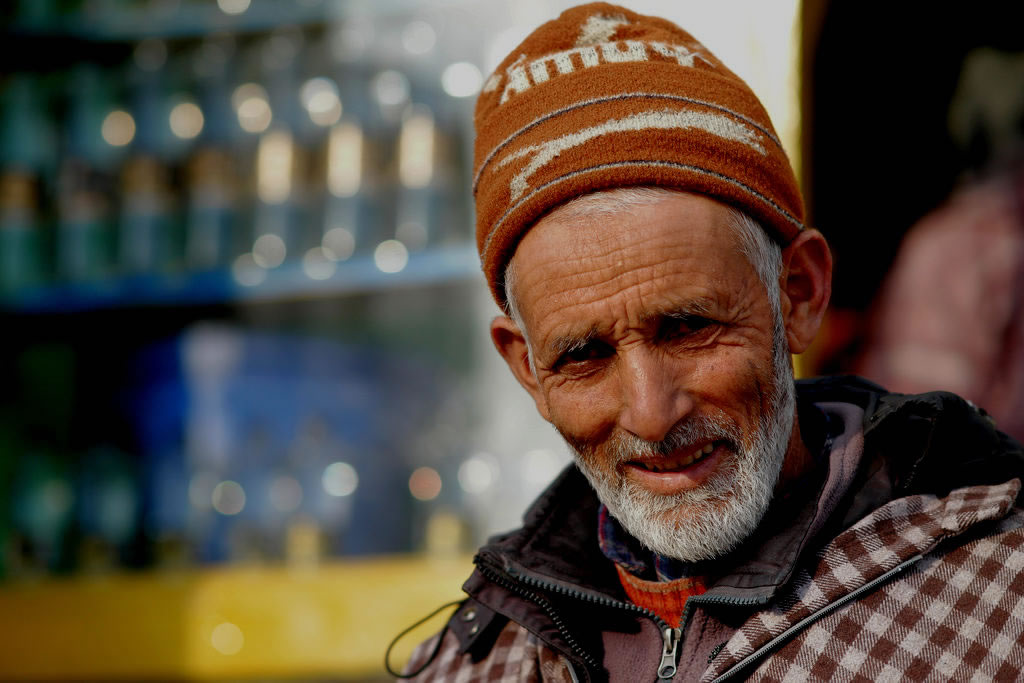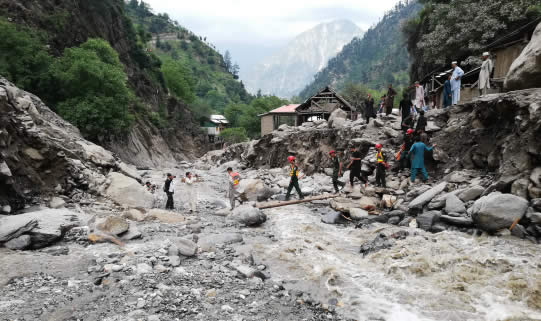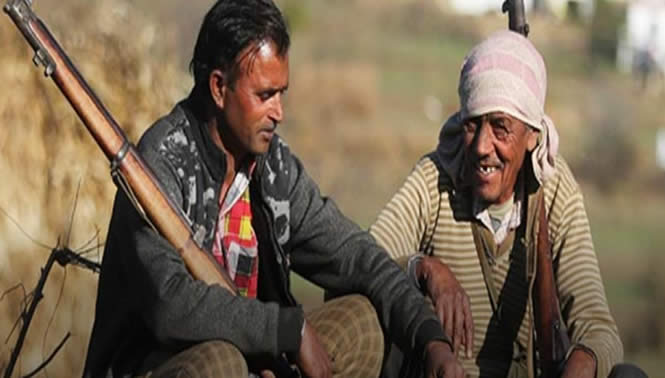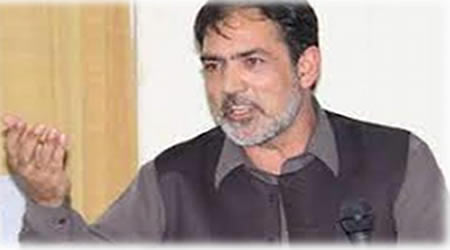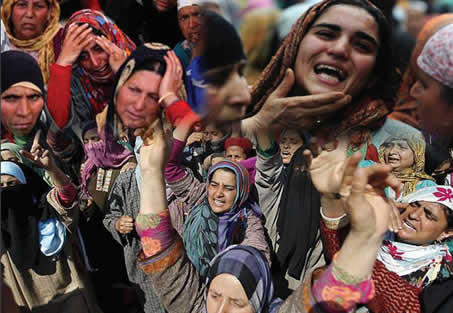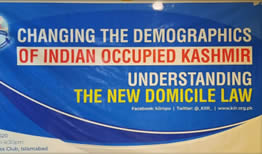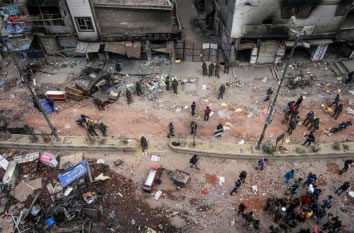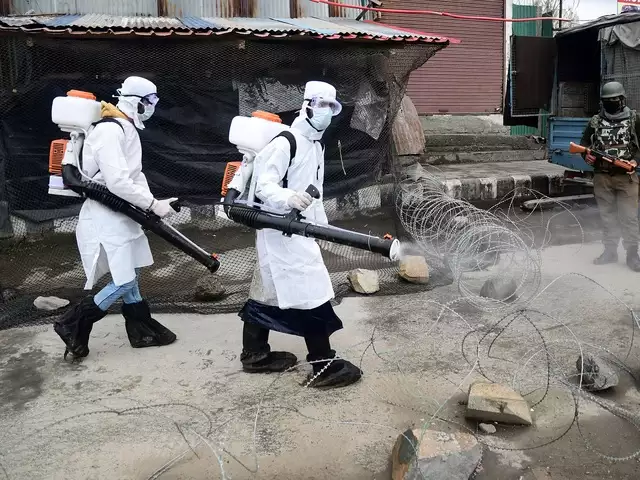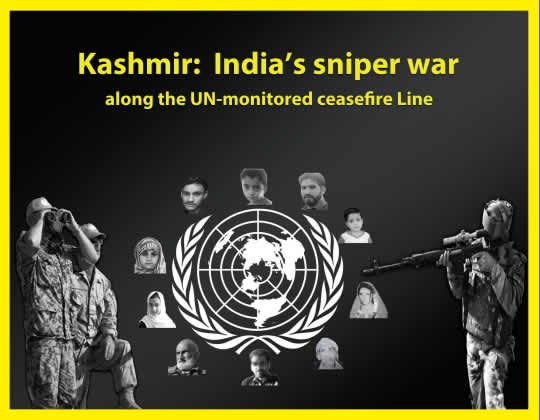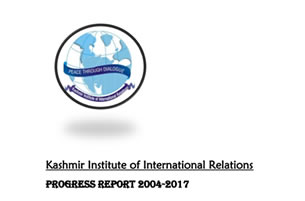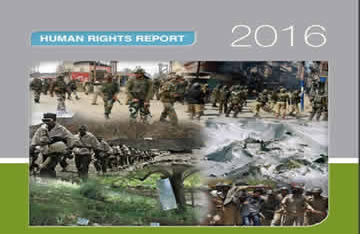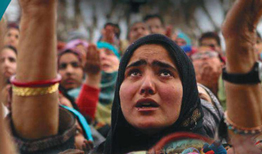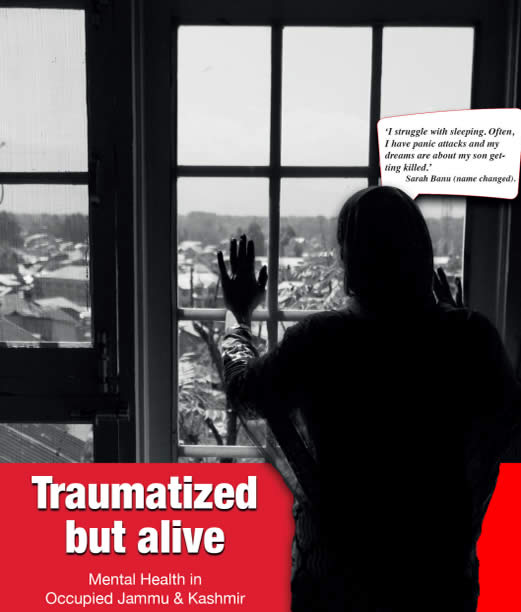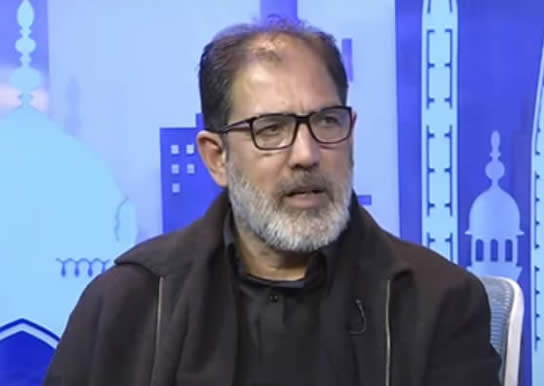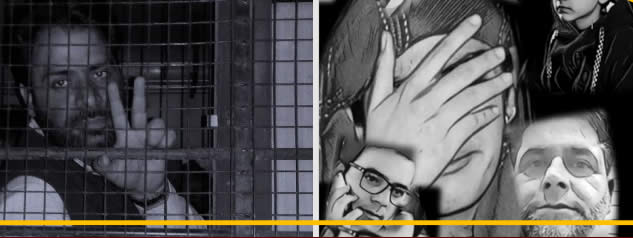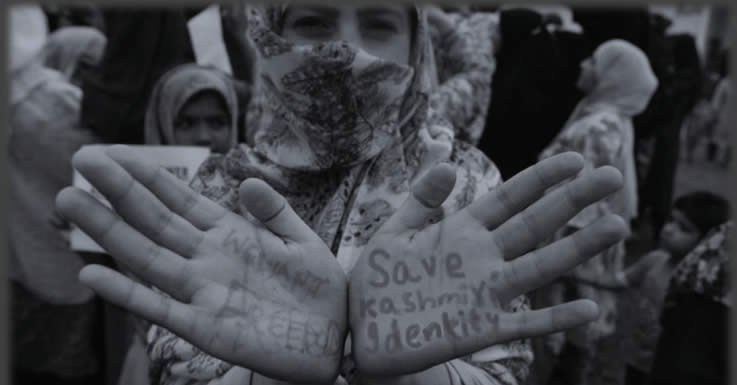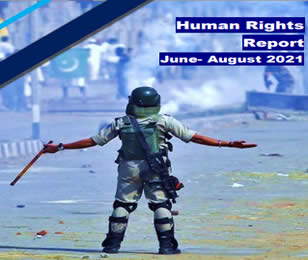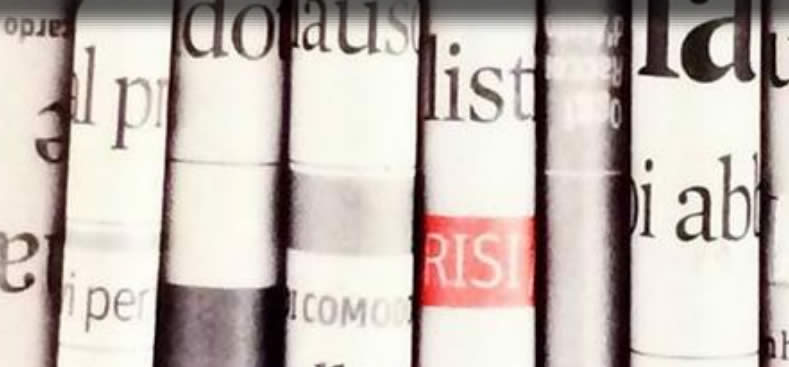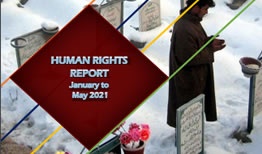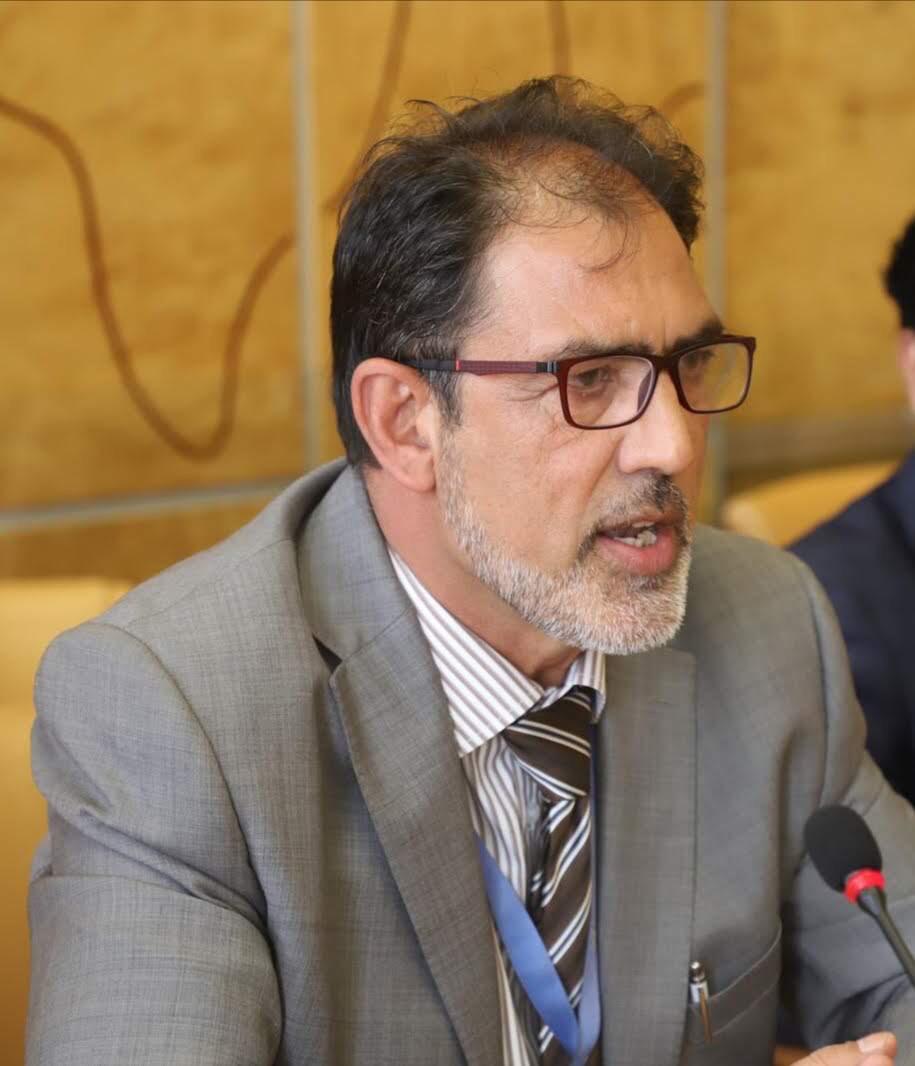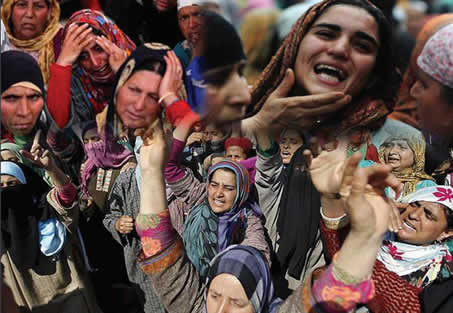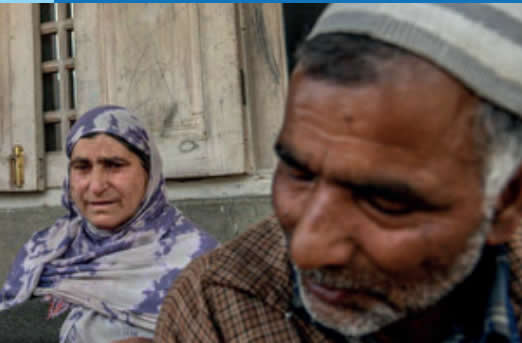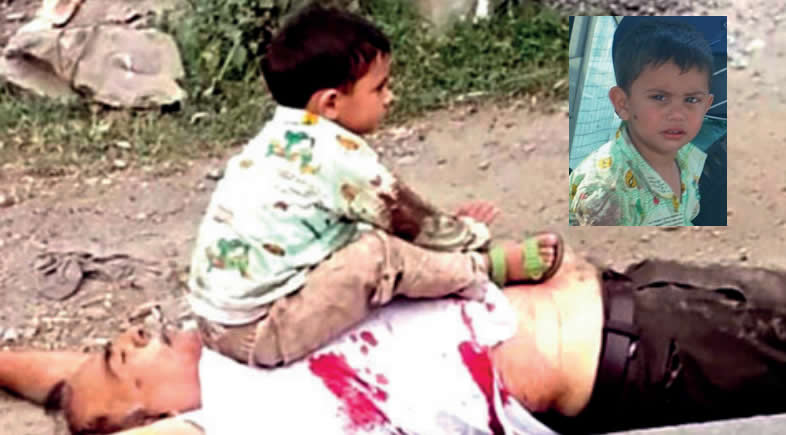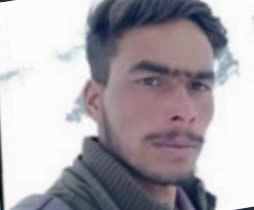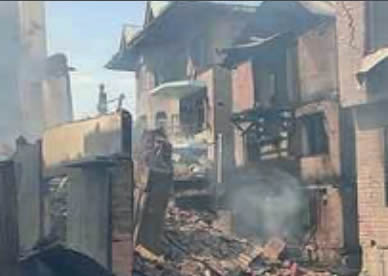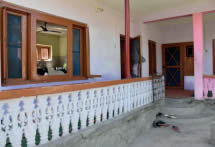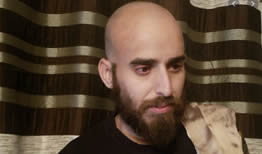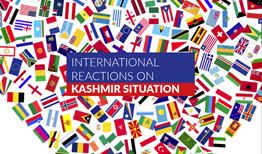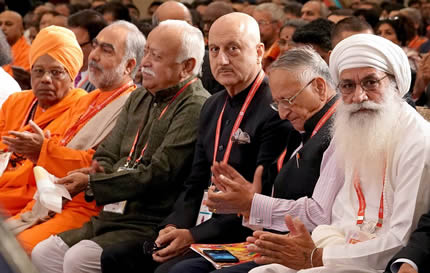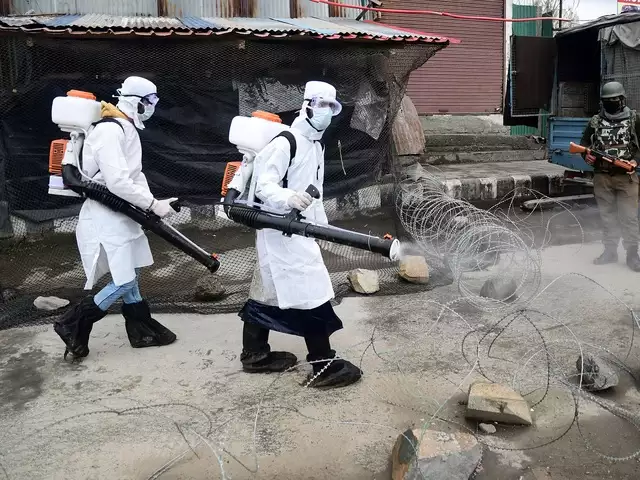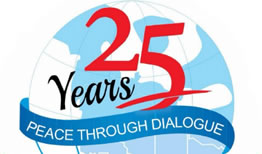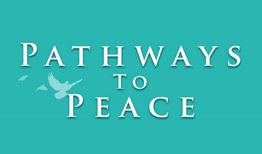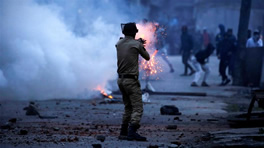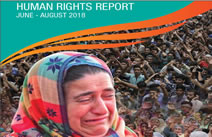The Bifurcation of Article 370 & its Implications
 On August 5th, 2019, Indian government led by Narendra Modi abrogated Article 370 of the Indian constitution which had guaranteed a special status to the Jammu & Kashmir and Ladakh. Apart from this, the federal government bifurcated the erstwhile region into two Union Territories, which would be governed by the federal government directly. India's parliament annulled the two articles, Article 370 & 35A, in its 72-year-old constitution allowing the state of Jammu and Kashmir to make its own laws and prevent outsiders from living and working freely in the region. Revoking this special status to fully integrate J&K into India has been a longstanding politico-ideological demand of the Bharatiya Janata Party (BJP)–the BJP’s 2019 Lok Sabha Election manifesto clearly mentions the party’s historical position on the abrogation of these articles which allowed the J&K legislature to define permanent residents of the state. Close to 9.5 lakh personnel from the Army, paramilitary and special forces besides Indian Air Force are guarding every inch of Kashmir Valley amid heightened tensions between India and Pakistan post the scrapping of Article 370 for Jammu and Kashmir. While majority of forces were stationed in the Valley, the Centre, over the last month has deployed over 1.75 lakh additional personnel, which is unprecedented in the history of Jammu and Kashmir.
On August 5th, 2019, Indian government led by Narendra Modi abrogated Article 370 of the Indian constitution which had guaranteed a special status to the Jammu & Kashmir and Ladakh. Apart from this, the federal government bifurcated the erstwhile region into two Union Territories, which would be governed by the federal government directly. India's parliament annulled the two articles, Article 370 & 35A, in its 72-year-old constitution allowing the state of Jammu and Kashmir to make its own laws and prevent outsiders from living and working freely in the region. Revoking this special status to fully integrate J&K into India has been a longstanding politico-ideological demand of the Bharatiya Janata Party (BJP)–the BJP’s 2019 Lok Sabha Election manifesto clearly mentions the party’s historical position on the abrogation of these articles which allowed the J&K legislature to define permanent residents of the state. Close to 9.5 lakh personnel from the Army, paramilitary and special forces besides Indian Air Force are guarding every inch of Kashmir Valley amid heightened tensions between India and Pakistan post the scrapping of Article 370 for Jammu and Kashmir. While majority of forces were stationed in the Valley, the Centre, over the last month has deployed over 1.75 lakh additional personnel, which is unprecedented in the history of Jammu and Kashmir.
“The whole of Kashmir is, at the moment, a prison, under military control.”
Article 370 of the Indian constitution was supposed to encapsulate the terms under which the Maharaja of Kashmir was supposed to have acceded to India. By removing this article, India has eliminated the only legal argument it had itself advanced to justify its claim to Jammu & Kashmir. By its own legal yardstick, therefore, there now is naked occupation. The Modi government has closed all doors to a peaceful and negotiated resolution of the dispute. It has rejected a bilateral dialogue with Pakistan as well as third-party mediation. Following its Aug 5 unilateral actions, India says there is nothing to negotiate with Pakistan except the “return” of “Pakistan-occupied Kashmir” to India. Anticipating public backlash to the move on August 5, India deployed tens of thousands of additional troops and swept a dark, virtual curtain across its portion of the disputed Kashmir region it controls with a communications blackout, travel curfews, and roadblocks. There is unrest among the population that is suffering from acute distress. The government has repeatedly assured the world that life there is getting back to normal and any unrest has been minor. But scraps of information trickling out of the region tell a different story.
Since the arrival Modi in political scenario in 2002, India has steadily drifted into world of “pseudo-reality”. By 2019, India has fallen deep into “the abyss of a totalitarian society”.
Detentions under Public Safety Act (PSA)
 More than 4,000 people were detained in Jammu and Kashmir in the days leading to, and after, the August 5 decision, including political leaders, elected representatives, lawyers, activists, businessmen and students. Most were held under a controversial Jammu and Kashmir Public Safety Act (PSA) legislation, which allows authorities to book a person without charge or trial for up to two years. It is not clear how many of the 4,000 are still detained. Most of the region's political leaders are among more than 1,000 people under arrest, according to official figures, which include three former chief ministers of the state, legislators, political workers and freedom fighters.
More than 4,000 people were detained in Jammu and Kashmir in the days leading to, and after, the August 5 decision, including political leaders, elected representatives, lawyers, activists, businessmen and students. Most were held under a controversial Jammu and Kashmir Public Safety Act (PSA) legislation, which allows authorities to book a person without charge or trial for up to two years. It is not clear how many of the 4,000 are still detained. Most of the region's political leaders are among more than 1,000 people under arrest, according to official figures, which include three former chief ministers of the state, legislators, political workers and freedom fighters.
On August 20, Security forces detained 30 people overnight in Srinagar amid frequent demonstrations in the city despite a clampdown on phone and internet services, a ban on public gatherings and the detention of hundreds of political leaders and separatists. A local government official confirmed the latest detentions, these arrests have been made in the areas where there has been intensifying stone pelting in the last few days.
Widow Rozi said a gun was put to her head and she was told to "keep quiet" by soldiers as they led her 20-year-old son Suhail Mohiuddin from the house. Another woman, Mubeena, said a soldier "sprayed something on my face" when her brother was seized. "I fell down in pain and couldn't see for a while. When I gathered myself my brother had already been taken away," Ali Mohammed Rah said police and soldiers burst into his home and dragged his two sons, age 14 and 16, from their beds. They forced their entry, trained their guns at us while ordering us not to raise any alarm, Rah said. He said his wife, who is a heart patient, “pleaded with them to let our boys go but they whisked them away. My wife collapsed and is now in a hospital.”
 A young woman named Ulfat, who is still recovering from giving birth, said her husband was arrested at their home about 2 a.m. “Who will provide our family with food and medicine? Where should I go with my baby?” she said, her newborn daughter in her lap.
A young woman named Ulfat, who is still recovering from giving birth, said her husband was arrested at their home about 2 a.m. “Who will provide our family with food and medicine? Where should I go with my baby?” she said, her newborn daughter in her lap.
Ulfat, a Kashmiri woman holds her forty days old daughter Tanzeela, as she waits outside a police station to hear about her husband who was detained during night raids

Pellet Gun Victims:
Pellet guns are commonly used by Indian security forces to disperse crowds in Kashmir. Human rights groups and local media have reported that Indian troops are firing pellet guns at protesters. At least 500 incidents of protest have broken out in Indian-occupied Kashmir since New Delhi stripped the region of its autonomy. Thousands of police and paramilitary troopers have been deployed in the region, one of the most militarised in the world with nearly 700,000 soldiers on the ground. The protests have broken out, including in the main city of Srinagar, with police using pellet guns and tear gas to disperse the crowds.
On August 10, Farooq Ahmad Qureshi walked out of his home in Srinagar to buy some bread from his local bakery. Suddenly he heard a sound and next blood started oozing from his left eye. He fell down and started crying in pain. The doctor told him he had been hit in the eye by pellets. The doctors who treated me said he has a little chance of regaining (my) sight as three pellets had seriously damaged his eye.
At least 152 people reported to Srinagar's Shere Kashmir Institute of Medical Sciences (SKIMS) and Shri Maharaj Hari Singh hospital with injuries from pellet shots and tear gas fire between August 5 and August 21. A 16-year-old student, Asrar Khan, was hospitalised on August 6 with severe injuries after a confrontation with Indian security forces.
Saleem was watching from his window when he saw a man falling to the ground. He was his neighbour. But before he could lift him, another person fell. Both of them were hit by pellets in their eyes. Due to lack of transport, Saleem sat one of the wounded on his motorcycle and reached Shri Maharaja Hari Singh Hospital, crossing more than 20 barricades and checkpoints on his way. At the hospital, Saleem realised there were many others suffering from with bullet and pellet wounds. According to Saleem, his neighbours are 16 & 19 but he was shocked to see a few pellet victims who were younger, one was a four-year-old.
In Nawab Bazar, Srinagar, Haleema sent her son to check on her relatives who lived a few metres away. After half an hour, a neighbour came to me and said her son received pellet wound in his left eye. She asked one of my neighbours to drive me to the hospital. She found her son lying on the bed. There were others as well.

Violent Crackdowns by Security Forces:
Following the abrogation of the constitutional guarantees of autonomy to Jammu and Kashmir and its bifurcation into union territories on August 5, three civilians are reported to lose their lives because of the violent crackdown by security forces. In the three weeks of this unprecedented siege, a large number of civilians have also been critically injured due to the indiscriminate use of pellets guns, bullets, and tear gas canisters. These have not only been employed during violent clashes, but also on peaceful protesters. Numerous demonstrations and rallies are being held across the region, especially in Srinagar’s Soura and downtown areas, which has been the main epicenter of resistance, so far. Such protests and ensuing casualties remain under-reported by the Indian media, gag imposed on the media by the Indian government. On August 17, 55-year-old Ayub Khan, a father of three daughters, from the downtown area of Baripora in Srinagar, choked to death after being exposed to tear gas lobbed by the Indian forces. He vomited blood and immediately lost consciousness because of the smoke. Similarly, a 34-year-old woman, Fehmeeda, died from suffocation caused by a tear gas shell fired by the Indian forces in uptown Srinagar, on August 22. Doctors who operated on her at the Bemina Hospital have revealed that the death was caused by acute lung injury due to inhalation of toxic gases. However, the hospital’s management, under the command of the police, has refused to provide a death certificate and has cited a different reason for the fatality. In an earlier incident on August 5, teenager Osiab Altaf from Srinagar’s Palpora area lost his life after he jumped into the Jhelum river while being chased by the Indian security forces. His father Mohammad Altaf Mazari confirmed that his son was cornered by the Indian forces, along with some other boys, on a footbridge. With no other option in sight, he was forced to jump into the river.
Kashmir remains Incommunicado:
Blackouts are relatively common in Kashmir, India cut off the state's internet 134 times last year. However, this time the massive lockdown and communication blockade imposed by local government continued in restive Indian-controlled Kashmir for the 3rd week. The blackouts are a tool to stop people from organizing protests, and to control the spread of information that Indian authorities deem unsavory. Men in uniforms and carrying automatic weapons have set up barricades on roads in a bid to disallow mass free movement of the people. Locals in Srinagar city and other townships are facing extreme hardships in getting essentials. Shops and business establishments remain closed and public transport is off the roads. According to affectees the communication blockade has affected them seriously and pushed them back to Stone Age. With all means of communication suspended, people don't know anything about our relatives and friends in other parts of the city and not to talk of ones who are outside Kashmir.
Gag on Media:
“Kashmir has been turned invisible even inside Kashmir”
The police are complicit in threatening media personnel with dire consequences if any casualties are reported by them. Indian Police are also restricting journalists' in the region by occupying their offices and blocking key roads. Security services have placed checkpoints all around the region and there is no way to get past them. Many local outlets don't have the means to report the news and some news sites are either not updated or completely blank. Journalists in Kashmir have reported being prohibited from moving around the region and local TV channels and news websites are unable to function. Some local journalists have been able to continue file stories either with a satellite phone or giving USB sticks of their work to people flying out of the region, but they remain a minority. Authorities continue to bar activists and journalists from reporting on the ground situation. On August 15, a local journalist, Irfan Amin Malik r/o Tral in south Kashmir, was picked up by the security forces in the middle of the night.
Restrictions on Public Gatherings:
In some places, restrictions prohibit gatherings of more than three people remain in place, police demand identification and a vehicle check at each checkpoint, and fears of violence are keeping residents inside their homes after sunset. In downtown Srinagar, which is considered more volatile as it's a poorer, more densely populated part of the city, coils of wire remain at every corner to restrict the movement of vehicles.
A bid to Economic Growth:
There is a brutal crackdown going on in Kashmir and no one is talking about it, every new day under the current lockdown is getting harder to bear. The markets were already down after the government had asked tourists and pilgrims to leave. There was tension all around. But now we are caught in a situation which could last for months. There is a humanitarian crisis unfolding in Kashmir at the present moment. It's been two weeks, children haven't been able to go to schools. Patients aren't able to access medical facilities. Families are running out of essential supplies. Raees Ahmad, owner of Friends Medicate pharmacy in Srinagar says other products have begun to run out, we have a shortage of 80% drugs in our shop. No new supplies are coming because of the continuous shutdowns and restrictions. We cannot transfer money to the suppliers outside the state to get supplies. We are telling our customers to try and get medicines from other medical stores in the vicinity. Bilal Ahmed Mir has almost dug into all his savings in the last 15 days of lockdown in India-administered Kashmir. The 48-year-old, who lives in a neighbourhood next to historic Jamia Masjid in Srinagar city, is worried that he'll soon run out of money and be pushed to borrow from here and there to feed his family. Mir is one of the dozens of families in the area that make their living from the bazaar that runs inside the Masjid complex. All gates of the Masjid have remained locked since the crackdown in Kashmir began on August 5. Outside only Indian paramilitary troops and policemen guarding the entries are present. Sami Ullah, 28, whose Srinagar-based logistic startup was set to complete its first year of operations in August, is now under lockdown and the resident of Khanyar locality is finding it difficult to locate his eight employees. He says I haven't been able to pay the salary to my employees for the last two months. And on top of that, we are already running huge losses. Who is going to deliver a parcel in this situation? All the orders we parcel we have collected are lying in the warehouse which we have not been able to access. Muheet Mehraj, another young entrepreneur based in Srinagar finds himself in a similar situation. His online retail shop has been defunct since the lockdown began, leaving many of his employees virtually unemployed. He says all I can tell you right now is we have done zero business in the last 16 days. There a number of problems that have arisen due to the present lockdown and it will take the economy months or years to recover even if calm returns to the valley soon.
Horticulture and Agriculture Industry:
The current lockdown has also jolted the horticulture and agriculture industry which make up a large chunk of Kashmir’s economy. The horticulture industry is also suffering. Most of control atmosphere stores are in Lasipora Pulwama. An apple farmer from the Pulwama district of Kashmir describes the situation “there is no way to find out if the stock in there is still useable. And even if we do access it, there is no way to transport. No labourers to load and unload it. It's a very difficult situation to be in.” The state’s economy has been hit the worst. According to the Kashmir Chamber of Commerce (KCC), this clampdown is turning out to be a huge humanitarian crisis. According to Nisar Khan, vice president of KCC, if the lockdown continued like this, the Kashmir valley will face a complete breakdown of the economy, hitting the horticulture, agriculture and tourism sector.
Cancellation of Marriage Functions:
A large number of marriage functions have also been cancelled or postponed. In Kashmir region, marriage functions not only serve as a place of social gathering but also a market where a large sum of money exchanges hands and creates job opportunities for people involved in food and catering business. Aamir, a resident Lal Bazar, who got married on August 20 without a ceremony being held said we called off our marriage function in view of the current situation. Even though we had already paid advances to many of the vendors, we had no choice. There are hotels who may have to pay back to the customers who had booked the hotels in advance. They are in ruins. The local Greater Kashmir newspaper dedicated its entire back page on one day to announcements of cancelled weddings or receptions due to the curfew and government crackdown.
Demographic Change:
Many in Kashmir fear that India is planning to change the demography of the region. This may be the real intention behind imposing a decision without taking the people or, for that matter, any of the politicians into confidence. The Indian government said the move to revoke the state's special status was to ensure the nation's laws are equal for all citizens. Prime Minister Narendra Modi's Hindu nationalist Bharatiya Janata Party (BJP) has repeatedly insisted that the provisions restricted investment and economic growth. However, it is believed that by allowing Indians to buy property in the mostly-Muslim region, Indian Prime Minister Narendra Modi is altering the state's demographic makeup to bolster Indian influence. The BJP’s fascist plan to impose a ‘final solution’ by changing Kashmir’s demographic composition will result in serious violations of human rights and humanitarian laws and could lead to a genocide in occupied Kashmir.
Sexual Abuse and Women Objectification:
Sense of fear deepens as Indian politicians stoke misogyny with talk of freedom to marry 'white-skinned' Kashmiri women. A number of the politicians with India's ruling Hindu nationalist Bharatiya Janata Party (BJP) made sexist comments directed towards Kashmiri women. On August 10, Manohar Lal Khattar, chief minister of Haryana, was quoted as saying: "Some people are now saying that as Kashmir is open, brides will be brought from there. But jokes apart, if [the gender] ratio is improved, then there will be a right balance in society." Earlier, the BJP's Vikram Saini, a Member of the Legislative Assembly, said: "Muslim party workers should rejoice in the new provisions. They can now marry the white-skinned women of Kashmir." According to reports, "How to marry Kashmir women" was increasingly Googled after August 5. The way women of Kashmir are eroticized and objectified on a daily basis in India, the way their bodies are portrayed as vulnerable and used to create fear and intimidation, has heightened the sense of being preyed upon. Systematic sexual abuse and other forms of gender-based violence are often deployed as weapons in war. Some of the women and girls also spoke of their fears of "being molested during such raids". Indian forces have previously been accused of sexual assault in Kashmir. On February 23, 1991, as India carried out a large military operation, soldiers allegedly raped more than 30 women in two villages, Kunan and Poshpora, in the Kupwara district The Indian Army has always denied the allegations. But in a July report, the UN said: "There has been no progress in the Kunan Poshpora mass-rape case from 1991, and authorities continue to thwart attempts of the survivors to get justice." It also called on India to "investigate and prosecute all cases of sexual violence allegedly perpetrated by state and non-state actors, and provide reparations to victims".
Vacant Educational Institutes amidst Fear:
Nearly 200 primary schools were ordered by the authorities to reopen in certain areas. However, attendance in schools remained scant, as many parents decided against sending their children amid heightened tensions in the state. Most schools, however, were empty as wary parents refused to send their children to school while the situation remains tense amid low-intensity and sporadic protests. “The students in primary classes age less than 12. There is still 99 percent communications blockade in the region. What if there are clashes on the way? Who will inform us and who will take responsibility of their safety?" asked Safiya Tajamul, a mother of two children in Natipora locality..

Impacts of Blockade on Health Sector: “India’s Kashmir Clampdown Turns Hospitals into ‘Graveyards’”
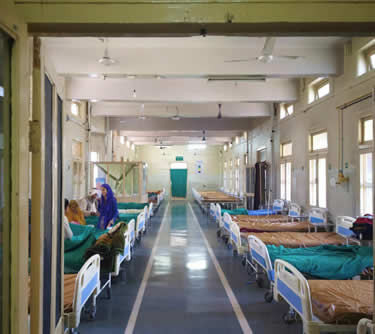 The situation had also affected the healthcare in hospitals in Indian Occupied Kashmir. Reports said the patient load had drastically fallen across the hospitals in wake of the blockade. Doctors had given dates to patients for performing surgeries and other important procedures but with the uncertain situation and communication blockade prevalent in IOK, patients are not approaching the hospitals. Locals are also unable to call ambulances when they're sick because mobile phones and landlines are not working and those who are able to find ambulances have also had their journeys to the hospital disrupted due to the roadblocks. Naseema Akhter, 62, writhes in pain in her home in south Kashmir’s Bijbehara town. She desperately needs immediate surgery to remove multiple stones detected in her gallbladder, but was turned away when she arrived at the hospital earlier this month after authorities decided to postpone her treatment. In northern Kashmir, Showkat Hussain, 12, is also unable to receive the surgery he needs to remove the hernia. The hernia is causing lot of pain in Hussain, who often gets up during the night and cries, he cries all day and has frightful nights. It seems there is no way out to get him healed, says his father. Hospitals turning patients away as doctors fear impending tragedy. Kashmir, which receives more than 90 per cent of its medical supplies from India, is facing an unprecedented shortage of drugs as a result of the lockdown and the panic buying of drugs. Malik Medical Hall is a known pharmacy in Uri, the last town in the north of Kashmir situated near LoC, but even there no important medicines are available any more. The hospitals are running out of stock, they have not received any fresh supply since August 5, there are no lifesaving drugs available only antibiotics are left. Nearly 3,000 Srinagar capital-based distributors are unable to supply drugs to chemists in Kashmir because of the blockade, adding that the worst hit are diabetic, hemophilia and hypertensive drugs. There was shortage of baby food in the Valley for nearly two days but fresh stocks have now been received and will last for a minimum of three weeks, the J&K administration said, adding that three persons each have been stationed at Jammu and Chandigarh for a quick dispatch of medicines and baby food. The SDM East nodal officer from the area is coordinating supplies in the Valley. Kashmiri people found it extremely difficult between August 5 and 9 to even get milk and vegetables for their kids, due to the total curfew. A large section of the media has abandoned its role as watchdog of democracy but health professionals are coming forward to speak truth to power. A young doctor who wanted to communicate to the world the plight of Kashmiris who are in urgent need of medicines was whisked away by police minutes after he spoke out about the health crisis facing Kashmir because of the three-week-old government clampdown. “My patients are suffering. Those needing chemotherapy are not able to procure drugs. Those who needed dialysis thrice a week are getting it only once a week”, Dr. Omer Chutzpah. On protesting on this humanitarian crisis, he was also detained by Indian Security forces. Omar Salim, a urologist at the Government Medical College, had appeared at Srinagar’s press enclave to speak to the media, wearing a doctor’s apron. He held a placard that said he was making a “request and not a protest”. He had barely spoken for 10 minutes when the police arrived and whisked him away to an unknown location, making it clear the authorities would not tolerate any questioning of their actions.
The situation had also affected the healthcare in hospitals in Indian Occupied Kashmir. Reports said the patient load had drastically fallen across the hospitals in wake of the blockade. Doctors had given dates to patients for performing surgeries and other important procedures but with the uncertain situation and communication blockade prevalent in IOK, patients are not approaching the hospitals. Locals are also unable to call ambulances when they're sick because mobile phones and landlines are not working and those who are able to find ambulances have also had their journeys to the hospital disrupted due to the roadblocks. Naseema Akhter, 62, writhes in pain in her home in south Kashmir’s Bijbehara town. She desperately needs immediate surgery to remove multiple stones detected in her gallbladder, but was turned away when she arrived at the hospital earlier this month after authorities decided to postpone her treatment. In northern Kashmir, Showkat Hussain, 12, is also unable to receive the surgery he needs to remove the hernia. The hernia is causing lot of pain in Hussain, who often gets up during the night and cries, he cries all day and has frightful nights. It seems there is no way out to get him healed, says his father. Hospitals turning patients away as doctors fear impending tragedy. Kashmir, which receives more than 90 per cent of its medical supplies from India, is facing an unprecedented shortage of drugs as a result of the lockdown and the panic buying of drugs. Malik Medical Hall is a known pharmacy in Uri, the last town in the north of Kashmir situated near LoC, but even there no important medicines are available any more. The hospitals are running out of stock, they have not received any fresh supply since August 5, there are no lifesaving drugs available only antibiotics are left. Nearly 3,000 Srinagar capital-based distributors are unable to supply drugs to chemists in Kashmir because of the blockade, adding that the worst hit are diabetic, hemophilia and hypertensive drugs. There was shortage of baby food in the Valley for nearly two days but fresh stocks have now been received and will last for a minimum of three weeks, the J&K administration said, adding that three persons each have been stationed at Jammu and Chandigarh for a quick dispatch of medicines and baby food. The SDM East nodal officer from the area is coordinating supplies in the Valley. Kashmiri people found it extremely difficult between August 5 and 9 to even get milk and vegetables for their kids, due to the total curfew. A large section of the media has abandoned its role as watchdog of democracy but health professionals are coming forward to speak truth to power. A young doctor who wanted to communicate to the world the plight of Kashmiris who are in urgent need of medicines was whisked away by police minutes after he spoke out about the health crisis facing Kashmir because of the three-week-old government clampdown. “My patients are suffering. Those needing chemotherapy are not able to procure drugs. Those who needed dialysis thrice a week are getting it only once a week”, Dr. Omer Chutzpah. On protesting on this humanitarian crisis, he was also detained by Indian Security forces. Omar Salim, a urologist at the Government Medical College, had appeared at Srinagar’s press enclave to speak to the media, wearing a doctor’s apron. He held a placard that said he was making a “request and not a protest”. He had barely spoken for 10 minutes when the police arrived and whisked him away to an unknown location, making it clear the authorities would not tolerate any questioning of their actions.
Psychological Issues: Mental Disorder:
The prevailing tense atmosphere in the state has exacerbated the high anxiety and depression levels among the population. Mental illness often stems from early-life trauma. It’s happening in Kashmir by Prof Vikram Patel, the Pershing Square Professor of Global Health at Harvard Medical School raises similar concerns. This study describes the results of a survey that assessed the mental health of a thousand children from 12 schools in the Shopian district of Kashmir valley. They report an astonishing finding: One out of every three of the children studied had a clinically diagnosable mental disorder, most commonly in the form of mood, anxiety or behavioural disorders.
International Reaction:
As such, it is unsurprising that Pakistan has intensified its diplomatic offensive to garner international support on the Kashmir issue, including expelling the Indian High Commissioner in Pakistan, stopping cross border trade with India, and initiating outreach to China, the United States, the United Nations, and the Organization of Islamic Cooperation (OIC). These diplomatic overtures risk the internationalization of the J&K issue for India. Genocide Watch, a US based organization, has issued an alert for Occupied Kashmir in the wake of India's ongoing clampdown in the Muslim majority region following revocation of its special status. It issued the alert just as PM Imran Khan urged the international community to prevent the impending genocide in Occupied Kashmir. An open letter signed by 69 human rights activists and organizations, lawyers, journalists and academics, addressed to India's Prime Minister Narendra Modi raised concerns over the human rights violations in Indian-administered Kashmir. The letter called on Modi to revoke the curfew, reinstate communication, release all those arbitrarily detained over the last few days, and restore the status of Jammu and Kashmir under Article 370 of India's constitution, which granted the Muslim-majority state considerable autonomy. India's unilateral actions in Kashmir pose "grave" risks to regional peace and are aimed at altering the demography of the Muslim-majority region, Pakistan's Prime Minister Imran Khan said in phone calls with the leaders of Jordan and France. Pakistan has sent another letter to the UN High Commissioner for Human Rights (OHCHR), demanding intervention to end the "humanitarian crises" in Indian-administered Jammu and Kashmir.
Kashmir Under Oppressive Siege:
Kashmir Under Oppressive Siege:It is an open war against the Kashmiri population. They have caged Kashmiris inside their homes with no access to the world outside. The situation remains unprecedented, without any doubt. Even pro-India collaborators, such as the former chief ministers, the union minister and other leaders are facing the state’s oppression. From the viewpoint of the common masses, these spineless politicians deserve the worst because they have betrayed their own people when they were in power from the past five decades and have the blood of hundreds of children on their hands. The chaos is quite visible in IOK. People in parts of Srinagar, countered the narrative of normalcy which is being staged through the imposition of a civil curfew. Given the danger, nobody is willing to open shops, businesses and institutions. The government, on the other hand, through the mainstream media, has been peddling the narrative of normalcy at the international as well as domestic level. The major powers and the UN will make efforts to convince India to reverse its course and engage in a credible peace process with Pakistan and the Kashmiri people. But Modi is drunk with power. He and his RSS coterie (Amit Shah, Ajit Doval et al), are convinced that oppression of the Kashmiris and aggression towards Pakistan is a winning strategy within India. They will probably spurn the calls for restraint and dialogue. India’s prolonged occupation of Kashmir is likely to turn into an Afghan-like quagmire. It will corrode morale in India’s armed forces, divide its polity and erode its economy. Like the colonial powers of the past, India will ultimately lose the debilitating war against a determined popular insurgency. It may take another 10 or even 20 years. But the heroic people of Kashmir, much like the famed Hindu Kush, will eventually bury the imperial dreams of Hindu India.
Nationalism is arguably the world’s most deadly and dangerous religion. Whereas patriotism describes a broad love of country.
Related Reports
